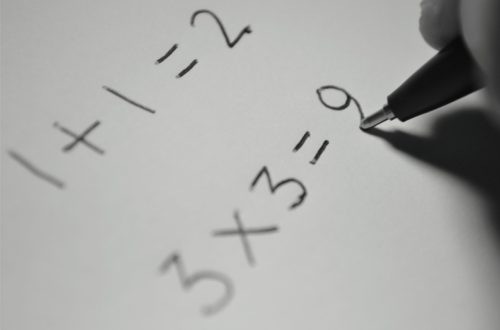Journal of the Mathematics Council of the Alberta Teachers’ Association
Volume 17 Issue 2, December 1977
Our Apologies for Errors of Commission and Omission
- Don Hines, treasurer, is the reporter of the NCTM Cincinnati annual meeting notes instead of Bob Holt, president, as given in the September 1977 issue. Both were in attendance and both are capable of fine reporting. Therefore, the error was naturally an easy one to manage.
- The error of omission was the failure to give vector, the British Columbia Newsletter/Journal, credit for being the source and original publisher of the lesson plans on pages 22 and 23 of the September 1977 issue (Vol. XVII, No. 1).
Looking into the Future
Articles from the 1977 annual conference in Red Deer will be the feature of our February issue. The report on the Math Olympiad will be one of the features in May. Any articles relating to the theme of math contests and/or articles of special interest to senior high level teachers will be featured in
this issue.
Ideas for use in your classrooms will be features of every issue. First preference will be given to Alberta teachers sharing with each other simple ideas or more complex ideas that are pertinent to aiding in the enrichment of the curriculum. However, we will use ideas from other sources that may not be as directly related to our course of study but are, nevertheless, equally useful when properly applied to our individual classrooms.
The next NCTM annual meeting is in San Diego, April 12 to 15, 1973. Remember that Bob Holt, our president, has assisted in providing an outstanding program as a member of the program committee.
Lyle Pagnucco, director, is chairman of our “name-of-site” meeting in Calgary in 1979. This is a joint meeting with NCTM that attracts attendance from Western Canada and Northern USA, with international speakers of a quality and number that we are unable to obtain for our regular annual meetings due to difference in size of meetings.
Needed from the Membership
… articles that share your thoughts and ideas with all of us. These may include ideas on “how to teach,” “what to teach,” “why teach … ,” or on a “pet” subject such as “Pythagoras Theorem – My Approach” or “Pythagoras Theorem – Why Teach It at All.”
We need your ideas and “pet” ways of winning math contests. Some of you have success regularly. Some of us never get out of the lower ranks. How about helping us improve? Or, should we place less emphasis on winning contests and more on “basic skills”? Can we prepare for contests and develop basic skills at the same time? Will success in contests correlate with success in life and/or in university life? Many are answering that we can succeed in teaching while succeeding in contests since both challenge our students to acquire the same skills, knowledge, and wisdom. If you agree, you need to share the techniques of your success with those of us still lost in the forest. If you disagree, you need to tell us why, with logical arguments that even a philosophy professor would find worthy of consideration and which we need as much as a “pat-on-the-back.”
We need your ideas on “how to teach” one small concept with a game, puzzle, or any other method not routine that works. Commercial ideas are plentiful, but we often find that our own approach is even better. We all know one and one equal two, eleven or ten depending on what restrictions we place on the problem. How do we show Grade I pupils the difference between the sum and the placing of the numerals side-by-side, or how do we explain base two to the junior high student preparing fora career in computer science? How many Grade XII students need more than just the statement one (base 2) + one (base 2) = 10 (base 2) before they can work the problems of this type with understanding? Get the idea? Send in your ideas on any concept now:
You will soon be receiving a new Monograph. In 1978 you will receive a monograph on reading in math. (The exact title will be given by Dr. John
Percevault, editor, at his convenience or at the time of publication.) During
the next six months, your executive will need two things: an editor and a theme for the 1979 monograph. bJhat is the most valuable item or items you can think of for our 1979 theme? Do you have an editor to suggest? We will choose either or both from our own collective ideas unless you help. We prefer your theme to one we choose since we know yours will be pertinent and we can only say in our limited wisdom that ours is what you want and need. “Don’t make us become dictators even as a presidium.”
Ed Carriger
1 – 2
Ed Carriger
3 – 16
Determinants and the Coordinate Plane
Kenneth Sipser
17 – 21
Lesson Plans Reprinted from Vector
from Vector, Newsletter/Journal of the British Columbia Association of Mathematics Teachers
22 – 23
Suggestions and Ideas Reprinted from The Math Post
from The Math Post
24



